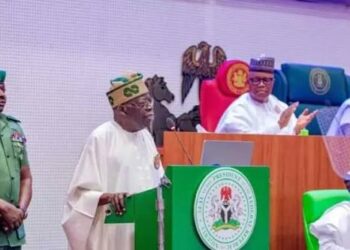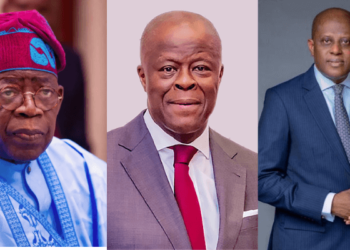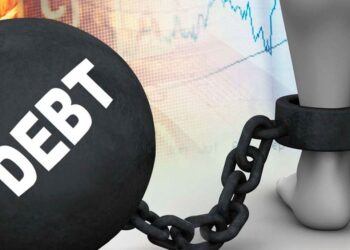
With the disclosure, Friday that Nigeria is set to achieve its plans of getting the $1.5 billion World Bank loan package, analysts are asking whether the country is not courting debt trap syndrome.
Zainab Ahmed, minister for Finance, Budget and National Planning said on Friday during an interview with Bloomberg Television that the country is in the closing stages of the deal following its fulfilment of the conditions set by the international multilateral organisation.
While pointing out that the senate approved the borrowing plan from the World Bank in June, Ahmed said the board of the multilateral institution will discuss the loan package at their next meeting.
It can be recalled that the World Bank loan which had been sought by Nigeria in the wake of the devastating impact of the coronavirus pandemic, was being delayed by the Brettonwood institution due to concerns over reforms as it feels that Nigeria has not shown enough commitment towards achieving them.
Some of the reforms include the unification and flexibility of the exchange rate, removal of fuel subsidy, increase in electricity tariffs amongst others. But, questions are being asked as to whether the conditions kitties have been met and whether it us desirable now.
However, it seems that with the recent deregulation of the downstream sector of the oil industry with the attendant removal of fuel subsidy and increase in electricity tariff, some of those concerns of the World Bank are gradually being sorted out.
Ahmed also said that Nigeria is considering joining the G-20 debt-relief initiative and is talking to commercial lenders to secure their backing.
It can be recalled that the World Bank loan which had been sought by Nigeria in the wake of the devastating impact of the coronavirus pandemic, was being delayed by the Brettonwood institution due to concerns over reforms as it feels that Nigeria has not shown enough commitment towards achieving them.
Some of the reforms include the unification and flexibility of the exchange rate, removal of fuel subsidy, increase in electricity tariffs amongst others. But, questions are being asked as to whether the conditions kitties have been met and whether it us desirable now.
However, it seems that with the recent deregulation of the downstream sector of the oil industry with the attendant removal of fuel subsidy and increase in electricity tariff, some of those concerns of the World Bank are gradually being sorted out.
Ahmed also said that Nigeria is considering joining the G-20 debt-relief initiative and is talking to commercial lenders to secure their backing.
She said, “We will consider joining as long as it is safe for us to do so. Nigeria couldn’t participate initially because some of the conditions were unfavourable for existing loan commitments with bilateral lenders and other international borrowings.”
But managing director and chief executive of the Financial Derivatives Company in the current FDC Bulletin expressed worries over the penchant for loans by Nigeria and other SSA countries, which are being lured into the classical debt trap.
Debt-trap diplomacy is where a creditor country intentionally lends excessive credit to a smaller debtor country, with the intention of extracting economic or political concessions when the smaller country cannot service the loan. For instance, Zambia has just declared a default on its sovereign bonds roiling financial markets. Consequently, he said that, that is why some skeptics are weary about the recent approval from the National Assembly for a $1.2bn loan from Brazil.
The loan, if approved will exacerbate Nigeria’s debt burden. According to the Minister of Finance, Nigeria’s total public debt stock is projected to increase by 4.84% and 24.73% to N32.51trn in 2020 and N38.68trn in 2021 respectively from N31.01trn (as at June 30, 2020).
But, the major risk is that the country’s debt service is rising at a time when total factor productivity growth has fallen to –5.9%.
But, the major risk is that the country’s debt service is rising at a time when total factor productivity growth has fallen to –5.9%.
The Federal government, in its 2021budget is determined to reduce the debt service which accounts for 60% of its independent revenue.
However, Nigeria still stands the risk of falling into a debt trap as interest payments become more expensive to fund when interest rates rise.
Consequently, the analysts say despite the retention of benchmark rates by CBN at the recent monetary policy committee meeting, even the reduction of the monetary policy rate would be meaningless unless other challenges like the liquidity ratio and other fiscal plocy measures are tackled.
But, while debt trap looms, the benign inflation is a course of worries for the analysts.
But, while debt trap looms, the benign inflation is a course of worries for the analysts.
For instance, whilst most analysts expected a spike last month due to the disruption of the EndSARS protests, not many envisaged that all the key baskets will jump to the embsrasding level.
In October, core, food, urban, rural and monthly inflation all skyrocketed. This has made many to fear that Nigeria might be approaching an era of hyperinflation especially with the recent 6.25% increase in the pump price of fuel (PMS) to N170/liter. The fact that core inflation, which is the price level adjusted for seasonalities accelerated faster than headline inflation suggests that this price increase is not festive season (Xmas) induced, and that means harder times ahead for consumers in particular and the economy in general.












